READY TO GET STARTED?
REQUEST A FREE ESTIMATE
Fill out the form below or call (888) 466-7849 for a free, no-obligation estimate.

Pest control is an essential part of maintaining a clean and safe home, especially when faced with recurring pest problems. When unwanted pests invade, the first instinct for many homeowners is to search for quick and effective solutions. For some, this means tackling the issue themselves with do-it-yourself (DIY) pest control methods, while others prefer to call in professional pest control services.
Both approaches come with their own advantages and drawbacks, and understanding them can help you make an informed decision about which method works best for your specific pest problem. In this article, we will explore the pros and cons of DIY pest control and professional pest control, highlighting factors like cost, effectiveness, safety, and long-term results.
One of the biggest advantages of DIY pest control is the potential cost savings. Professional pest control services can come with significant fees, which can add up over time. Many homeowners prefer to buy pest control products and handle the issue themselves, believing it will save money in the long run.
DIY pest control products, such as sprays, traps, and bait systems, are often available at affordable prices at local hardware or home improvement stores. Additionally, online retailers provide a wide variety of pest control solutions, making it easy to find what you need at a reasonable cost.
When you spot pests in your home, immediate action is often necessary to prevent further damage or infestation. DIY options allow homeowners to take action right away without waiting for a professional service to arrive.
With DIY pest control solutions readily available in stores or online, you can quickly eliminate pests like ants, spiders, or cockroaches as soon as you notice them.
Handling pest control yourself offers the convenience of addressing the problem on your own schedule. You can apply treatments at any time, without needing to coordinate appointments with a pest control company.
For small, isolated pest problems, DIY methods are usually sufficient and allow homeowners to manage minor infestations with ease.
For homeowners who are environmentally conscious or prefer natural alternatives, DIY pest control provides greater control over the types of products used. You can choose non-toxic or organic pest control products if you’re concerned about the chemicals found in conventional pesticides.
This flexibility ensures that you are using methods that align with your personal preferences and household safety standards.
One major drawback of DIY pest control is that most homeowners lack the experience and expertise of professional pest control technicians. Identifying the exact pest and knowing the most effective way to eliminate them requires specialized knowledge. For example, a termite problem is far more complex than an ant infestation, and using the wrong products or methods can make the situation worse.
Without proper training, DIY solutions may only provide temporary relief from a pest problem rather than a long-term solution. In more serious cases, pests may return or even become resistant to certain treatments.
Many over-the-counter pest control products contain chemicals that can be harmful to humans, pets, and the environment if not used correctly. Misuse or overapplication of these products can lead to health risks, including respiratory issues or skin irritations.
Professional pest control services are well-versed in handling hazardous substances and take proper precautions to ensure the safety of your household. DIY methods, on the other hand, may expose you and your family to unnecessary risks if instructions aren’t followed precisely.
While DIY pest control solutions can be effective for minor issues, they often fall short when dealing with more severe infestations. For example, a large rodent problem or a bed bug infestation requires more specialized knowledge, tools, and products that most homeowners don’t have access to.
DIY methods may not address the root cause of the problem or prevent future infestations. Without a thorough understanding of the pests’ behavior, DIY treatments might eliminate visible pests without targeting their nests or breeding sites, leading to recurring infestations.
Pest control is not always a one-time fix. Many DIY treatments require frequent applications and monitoring to ensure the pests are completely eliminated. For busy homeowners, this can become time-consuming and inconvenient.
In contrast, professional pest control companies offer long-term pest control solutions that require less involvement from the homeowner.
When deciding between DIY pest control and professional pest control, it’s essential to consider the severity of your pest problem, your budget, and your comfort level with handling chemicals and treatments.
DIY pest control can be a cost-effective and convenient solution for minor pest issues, but it often lacks the expertise and long-term effectiveness of professional services. On the other hand, professional pest control offers more comprehensive pest control solutions and peace of mind but comes at a higher cost.
If you’re dealing with a recurring or severe pest infestation, it’s worth considering professional pest control services to eliminate pests and prevent future problems. For those looking for quick fixes or minor pest issues, DIY pest control may be a suitable option.
When searching for solutions, whether it’s DIY pest control near me or a trusted pest control company, understanding the pros and cons of each method will help you make the best choice for your home and family.
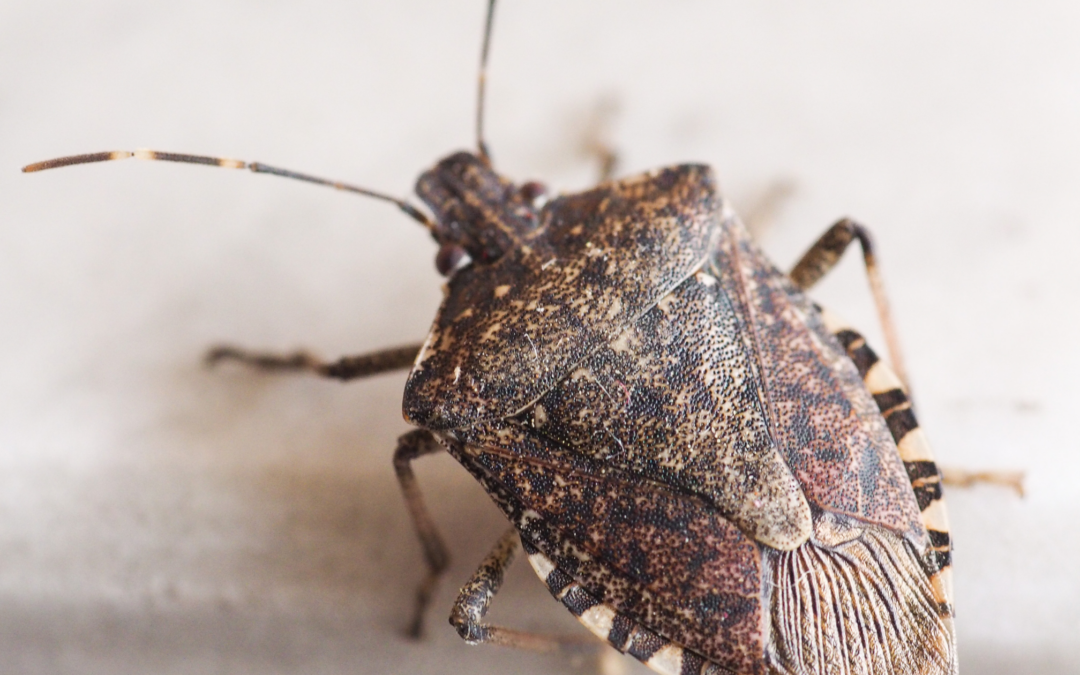
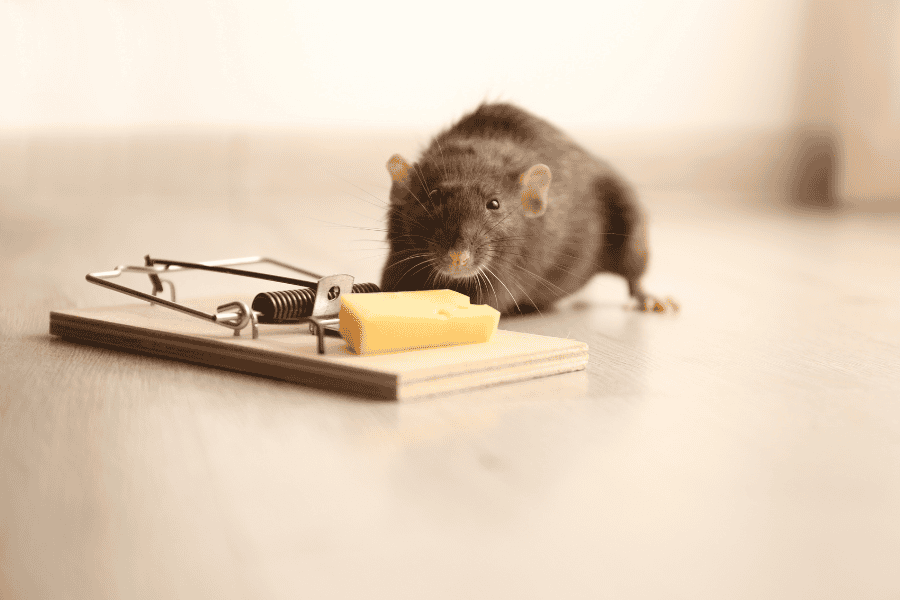
Dealing with pests in Auburn can be a challenging task for any homeowner. Whether it’s the persistent march of ants across your kitchen floor or the strange rustling of rodents in the attic, pests are not only a nuisance but can also pose health risks and cause property damage. When facing these unwelcome guests, homeowners often grapple with the decision of whether to tackle the problem with DIY pest control or call a professional pest control company. Here, we weigh the pros and cons of both approaches to help you make an informed decision.
Both DIY and professional pest control have their place in managing pest issues and by understanding the nature of your problem and weighing the pros and cons, you can choose the best approach for your home. Whether you opt to tackle it yourself or call in the pros, the goal is the same: a pest-free home that keeps you and your family safe and comfortable. If you’ve exhausted your DIY pest control methods and are still noticing more pests on your property than you’re comfortable with, call a pest control company near you for a free inspection and recommendations on the best treatment plan.
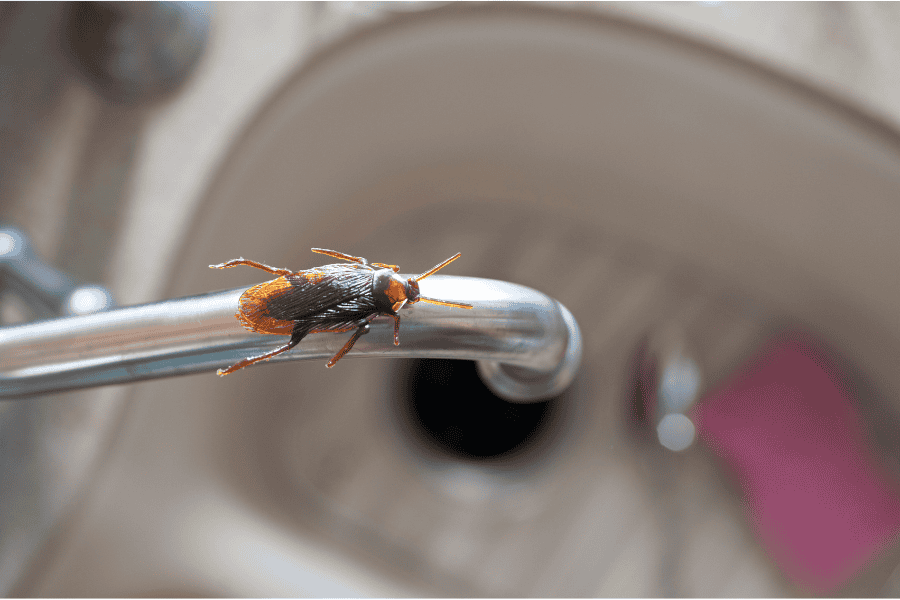
As a homeowner, one of the worst realizations is finding out you have a full-blown pest infestation! Whether you’re new to living in Auburn, Alabama or have been here for years, it’s always a good idea to know what pests you might be up against. Here’s a quick rundown of five common pests in Auburn that you might encounter in your home and some tips on how to keep them at bay.
Ants are tiny but mighty when it comes to invading our homes. Whether it’s the common house ant or the notorious fire ant, these pests can be a real nuisance if they find their way inside your home. To avoid their infestation, keep your kitchen counters clean and store food in sealed containers. If you notice an ant trail, follow it to find their entry point and seal it up with caulk or another barrier.
No homeowner wants to see a cockroach scurrying around in their home. Unfortunately, these pests are quite common in homes and apartments. These pests are attracted to food and moisture, making kitchens and bathrooms their favorite hangouts. Avoid roach infestation by regularly cleaning up crumbs, fixing leaky faucets, and taking out the trash frequently. If you spot one roach, there’s likely to be more, so consider calling a pest professional near you if the problem persists.
Mosquitoes are a familiar annoyance, especially during the humid summer months. These pests are not just irritating; they can also carry diseases, like the West Nile virus, making them more than just a pesky problem. Stop mosquitoes from taking over your yard by eliminating standing water around your home, where mosquitoes like to breed. Consider planting citronella on your property and use mosquito repellent containing DEET to keep them at bay when you’re outdoors.
While spiders can seem scary, most of them are harmless; but some species can bite if threatened. There are various spiders in Alabama, including the brown recluse and orb-weaver spiders. These pests often find their way inside during colder months, creating their webs in basements and closets. To avoid spiders, keep your home tidy and vacuum regularly, paying special attention to corners and under furniture. Spiders are less likely to stick around if they don’t have a place to hide.
Rodents, like mice and rats, will typically enter homes when the weather cools down to look for a food source and a place to nest. These critters can chew through just about anything, including wires, insulation, and even drywall. Avoid rodents entering your home by inspecting for any cracks or gaps where rodents might enter and seal them. Likewise, make sure you take the trash out regularly and place it in a trashcan that has a tight lid. If you suspect a rodent is in your home, it’s always best to call a wildlife professional near you to remove them.
No one wants to share their home with pests, but by being proactive and staying informed, you can keep your Auburn home pest-free. If you’ve seen the above common pests in Auburn or would like to get a jump on prevention, call a pest control company near you. These professionals will provide you with a thorough inspection and treatment and prevention plan.
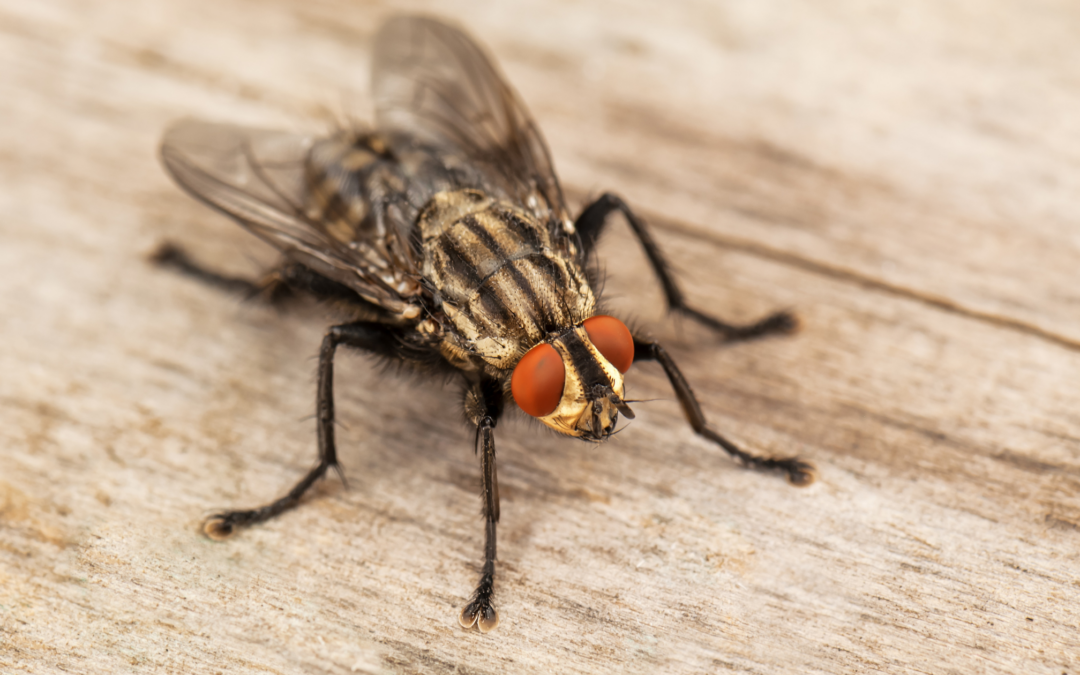
House flies are a common nuisance in homes across Georgia, often making their presence known with their incessant buzzing and quick movements. Understanding why these pests enter homes, the risks they pose, and how to prevent them can help you maintain a house fly free environment. This blog will explore the characteristics of house flies, why they infest homes, and effective strategies for keeping them out.
House flies (Musca domestica) are the most common fly species found in homes. They are medium-sized, typically measuring about 1/4 inch long. House flies have gray or black bodies with four dark longitudinal stripes on their thorax. Their eyes are notably large and compound, providing them with a wide field of vision. The life cycle of a house fly includes four stages: egg, larva (maggot), pupa, and adult. Under ideal conditions, this cycle can be completed in as little as seven to ten days, allowing large numbers to develop quickly.
House flies enter homes primarily in search of food, warmth, and breeding sites. They are attracted to a wide variety of organic materials, including food waste, decaying matter, and animal feces. Kitchens, garbage bins, pet areas, and even indoor plants can become attractive breeding sites. Flies are particularly adept at finding tiny openings in windows, doors, and vents, which they use to gain entry.
During cooler months, house flies seek warmth, which makes homes an attractive refuge. They are also drawn to the scent of food and garbage. Poor sanitation and improperly sealed entry points can exacerbate the problem, leading to an infestation.
While house flies may seem harmless, they can pose significant health risks. The house fly is known to carry and transmit a variety of pathogens, including bacteria, viruses, and parasites. House flies can contaminate food and surfaces with these pathogens, leading to illnesses such as food poisoning, dysentery, and respiratory infections. The fact that house flies frequently feed on waste materials further increases the risk of disease transmission.
In addition to health risks, house flies can be a general annoyance. Their presence can be unsettling, and they can quickly multiply, becoming a larger issue if not addressed promptly.
Preventing house flies from entering your home requires a combination of good sanitation practices, physical barriers, and, if necessary, professional pest control services. Here are some effective strategies:
House flies are more than just a minor inconvenience; they pose real health risks and can be a persistent problem if not properly managed. By understanding why these pests enter homes and implementing effective prevention measures, you can keep your living space free of flies. Remember, maintaining cleanliness, eliminating breeding sites, and sealing entry points are key steps in preventing a house fly infestation. For more persistent issues, a professional pest control company can offer comprehensive solutions.
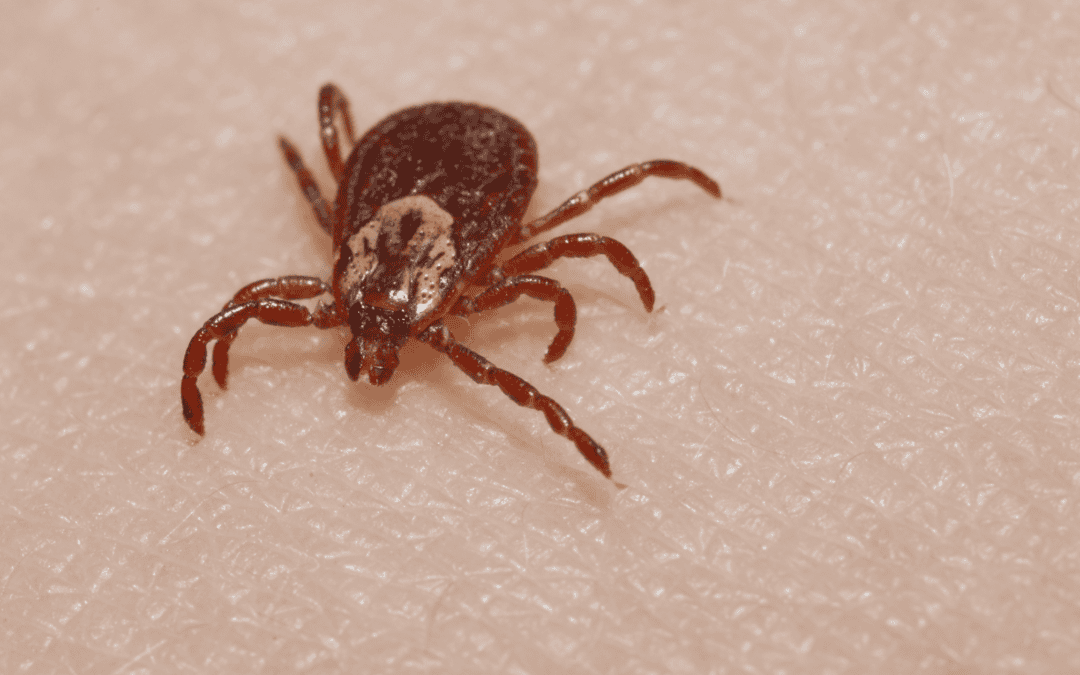
Ticks are a common nuisance in Georgia, often found in wooded areas, tall grasses, and even in backyards. These tiny arachnids can latch onto you or your pets and cause a range of health issues. Knowing what to do if you get bitten by a tick is crucial to prevent complications. In this blog, we’ll discuss common types of ticks in Georgia, the diseases they can spread, what to do if you get a tick bite, and preventive measures to keep ticks at bay.
Dealing with ticks can be daunting, but your local pest control company in Georgia is here to help. We offer comprehensive pest control services to protect your home, family, and pets from tick infestations. Our experienced technicians can identify tick hotspots around your property and provide effective treatments to eliminate ticks and prevent future problems.
Ticks are more than just a minor inconvenience—they can pose serious health risks to you and your pets. By understanding the types of ticks common in Georgia, recognizing the diseases they can spread, and knowing what to do if you get bitten, you can take proactive steps to protect yourself and your loved ones. Remember, prevention is key, and regular tick checks combined with pest control services can keep your environment tick-free.
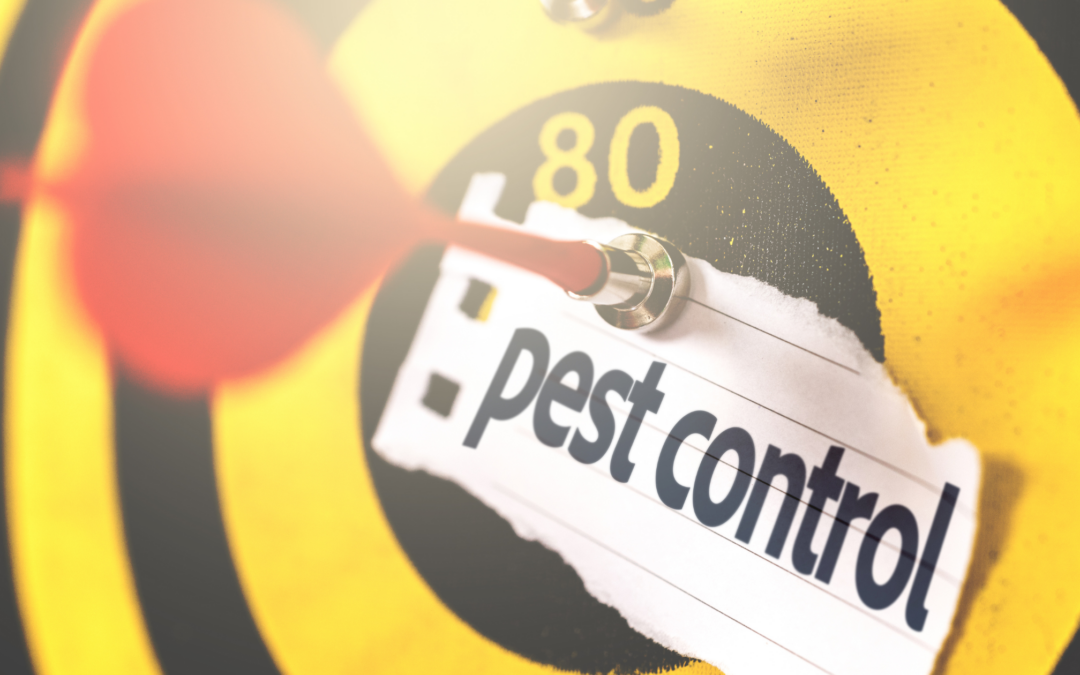
When it comes to maintaining a healthy and comfortable home environment, pest control plays a crucial role. However, traditional pest control methods often involve the use of harsh chemicals that can be harmful to both the environment and your family’s health. This is where green pest control comes in. As a pest control company in Georgia, we are committed to offering alternative pest solutions that effectively manage pests while protecting our planet.
Green pest control utilizes environmentally responsible methods and products to manage and eliminate pests. This approach prioritizes the use of natural and non-toxic treatments over conventional chemical pesticides. The goal is to minimize the impact on the environment while ensuring that your home remains pest-free.
Green pest control operates on the principles of Integrated Pest Management (IPM). This holistic approach involves several key steps:
Choosing green pest control for your home in Georgia offers several advantages:
Routine pest control is essential for maintaining a healthy and comfortable living environment. Pests such as ants, roaches, rodents, termites, and mosquitoes can cause significant damage to your property and pose health risks to your family. Ants can contaminate food. Roaches contaminate surfaces and spread diseases. Termites can destroy wooden structures from the inside out. Mosquitoes can transmit severe diseases such as West Nile Virus which have recently resulted in reports of West Nile Virus deaths. Regular inspections and treatments by a professional pest control company can prevent infestations and protect your home from potential harm.
Moreover, routine pest control helps in early detection of pest problems, making it easier to manage them before they become severe. It also ensures that preventive measures are consistently applied, reducing the likelihood of future infestations.
As a responsible pest control company in Georgia, we are dedicated to providing alternative pest solutions that prioritize the health of your family and the environment. Green pest control, with its focus on safety, sustainability, and long-term effectiveness, is the ideal choice for managing pests in an eco-conscious manner. By opting for integrated pest management, you can enjoy a pest-free home while contributing to the preservation of our planet.
Routine pest control is not just about eliminating pests; it’s about maintaining a healthy and safe living environment. Contact a pest control company near you today to learn more about our green pest control services and how we can help protect your home.
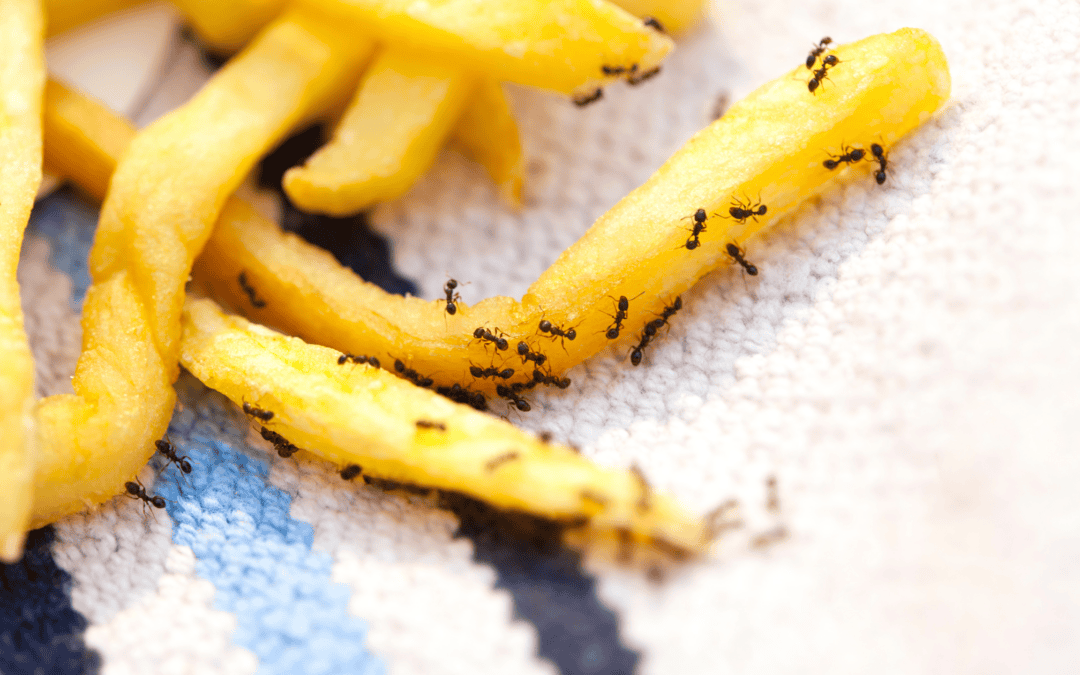
Summer is synonymous with warmth, outdoor fun, and unfortunately, pests. In Georgia, the hot and humid climate creates the perfect breeding ground for a variety of pests that can invade your home and yard. Understanding why summer is the peak season for pests, identifying common summer pests, and learning effective prevention tips are essential for maintaining a pest-free home. Here’s a comprehensive guide to help you manage and prevent summer pests.
Despite your best efforts, some pest problems require the expertise of a professional pest control company. In Georgia, where the pest population can be particularly persistent, regular pest management can make a significant difference. Here are some benefits of professional pest control services:
When searching for “pest control services near me,” look for a reputable company with positive reviews and proven results. A good pest control company will offer customized plans to suit your specific needs, ensuring your home remains pest-free throughout the summer and beyond.
Summer in Georgia brings with it an array of pests that can disrupt your home and outdoor activities. By understanding the common summer pests and taking proactive measures to prevent them, you can enjoy a pest-free summer. And remember, professional pest control services are always a reliable option to keep your home safe from unwanted invaders.
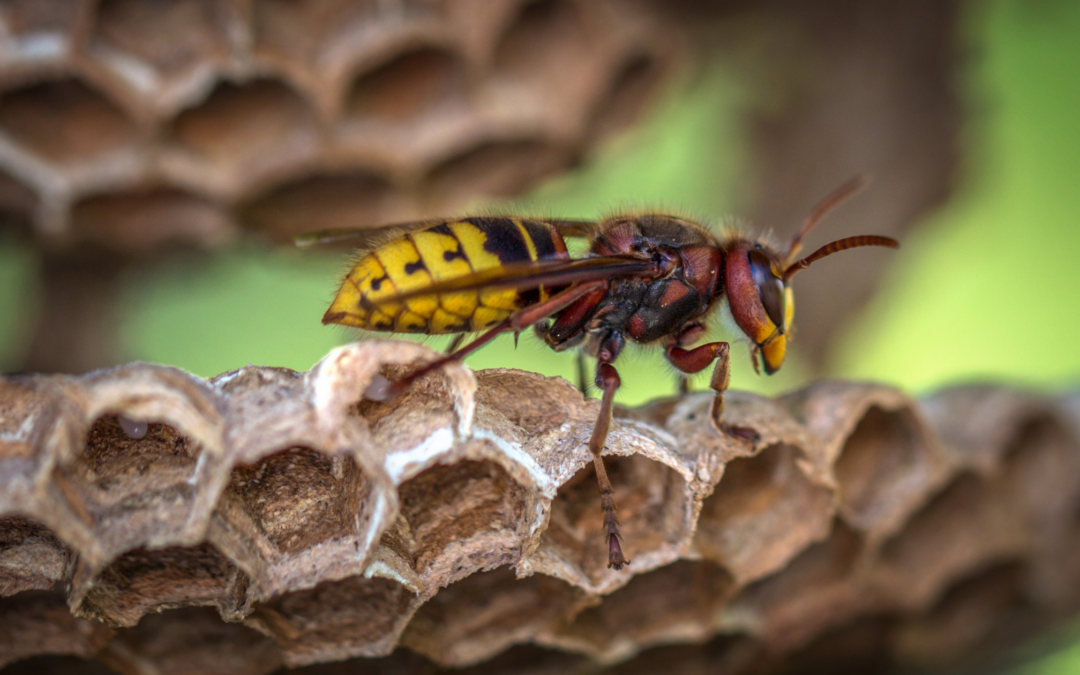
Georgia’s warm climate and lush landscapes make it a haven for various insects, including some that pack a painful sting. While many of these stinging insects play crucial roles in our ecosystem, encountering them in and around our homes can be alarming and potentially dangerous. In this guide, we’ll explore some of the most common stinging insects found in the region, the threats they pose, and how to deal with them effectively.
One of the most notorious stinging insects in Georgia is the yellow jacket. These aggressive insects are easily recognizable by their black and yellow striped bodies. They typically build their nests in hollow trees, underground burrows, or within wall voids of buildings. Yellow jackets can pose a significant threat to humans and pets, especially when their nests are disturbed. Their stings are painful and can cause allergic reactions in sensitive individuals.
Yellow jackets are about half an inch to three-quarters of an inch in length, with distinctive yellow and black markings on their bodies.
If stung by a yellow jacket, it’s essential to remove the stinger promptly to minimize venom injection. Clean the affected area with soap and water and apply a cold compress to reduce swelling. Over-the-counter antihistamines can help alleviate itching and discomfort.
Removing a yellow jacket nest can be hazardous and is best left to professionals. Attempting to remove the nest without proper equipment and expertise can provoke the colony, leading to aggressive behavior and more stings.
To prevent yellow jackets from nesting near your home, seal any openings in walls, windows, and doors. Keep outdoor garbage cans tightly sealed and promptly clean up any food spills or crumbs.
Paper wasps are another common stinging insect found in Georgia. They construct umbrella-shaped nests from a papery material, often hanging from eaves, tree branches, or shrubbery. While they are generally less aggressive than yellow jackets, they will defend their nests if threatened.
Paper wasps are slender with long legs and wings, typically brownish in color with yellow markings.
Treat paper wasp stings similarly to yellow jacket stings. Remove the stinger, clean the area, and apply a cold compress to reduce swelling.
If a paper wasp nest is located in a high-traffic area or poses a threat to residents, it’s advisable to contact a professional pest control company for safe removal.
Regularly inspect your property for signs of paper wasp nests, especially in the spring and summer months. Remove any existing nests during the winter to prevent reinfestation.
Hornets are another type of stinging insect that can cause concern for Georgia residents. These insects are larger than yellow jackets and paper wasps and often build their nests in trees, shrubs, or even on buildings.
Hornets have stout bodies with predominantly black coloring and white or yellow markings. Their nests are typically grayish and football-shaped.
Treat hornet stings similarly to other stinging insect stings. Remove the stinger, clean the area, and apply a cold compress to reduce swelling.
Due to the size and aggression of hornets, it’s best to leave nest removal to professionals. Attempting to remove a hornet nest without proper equipment and expertise can be dangerous.
Regularly inspect your property for signs of hornet activity, especially in secluded areas such as attics, sheds, and trees. Seal any openings or gaps in buildings to prevent hornets from entering.
In conclusion, encountering stinging insects in Georgia is not uncommon, but with proper knowledge and precautions, you can minimize the risks associated with them. If you’re dealing with a stinging insect infestation on your property, it’s best to seek assistance from a professional pest control company near you.